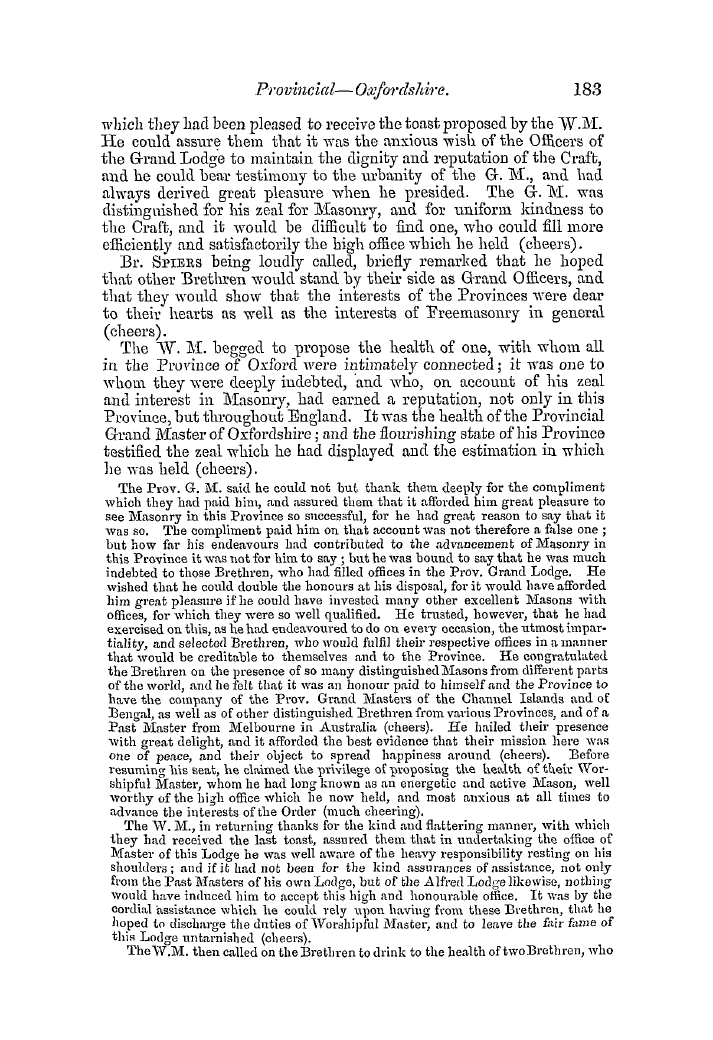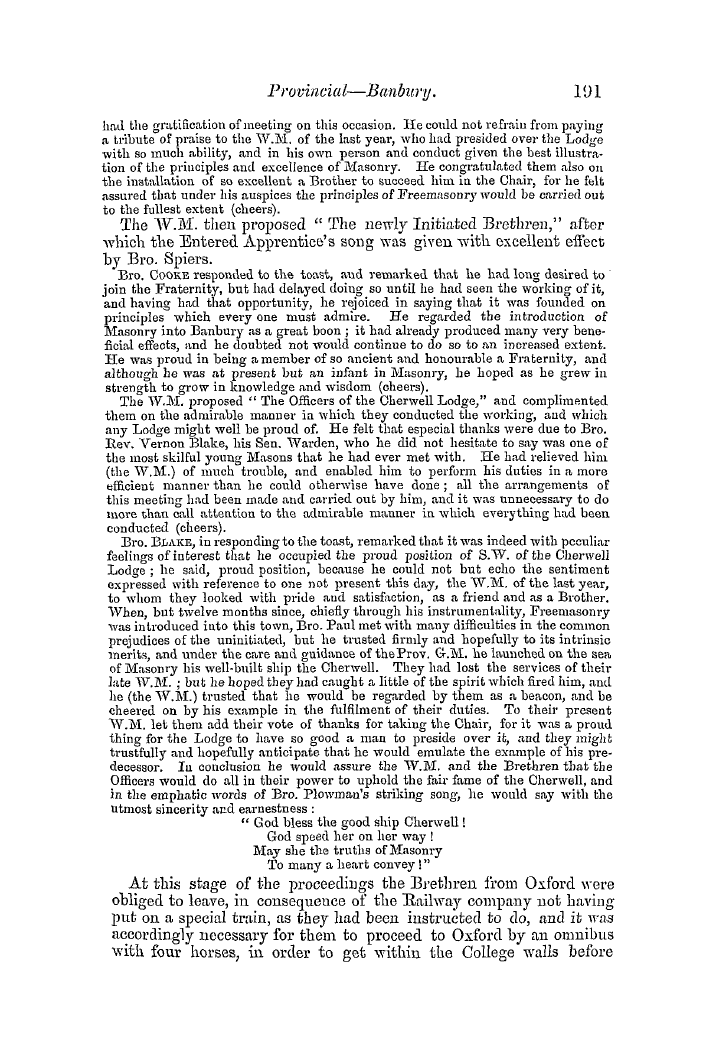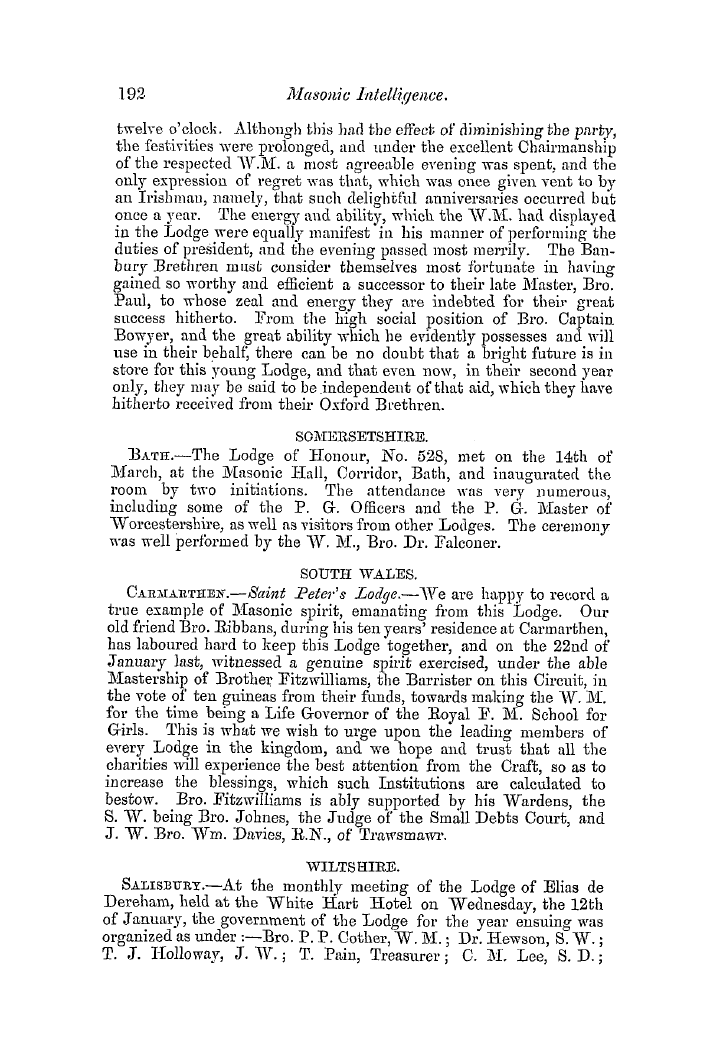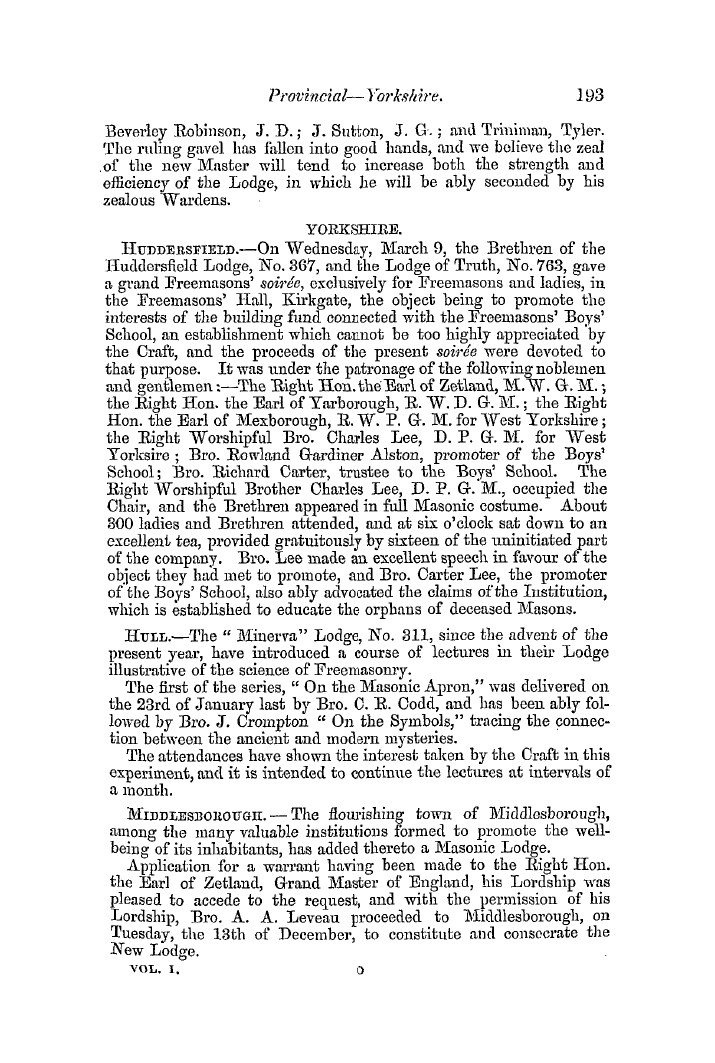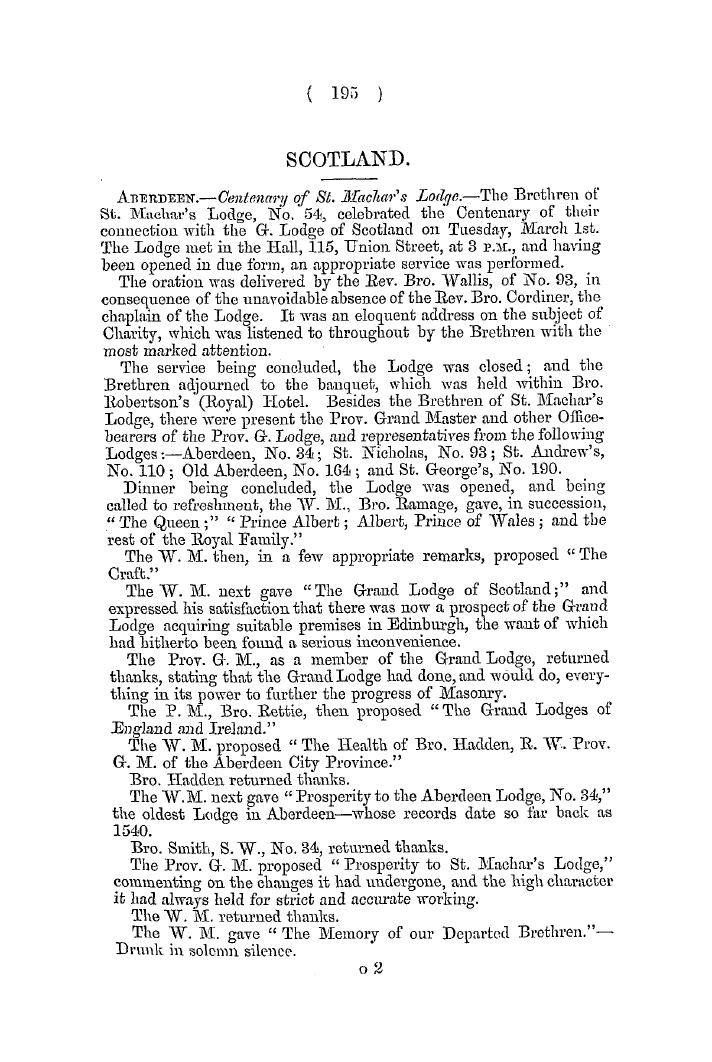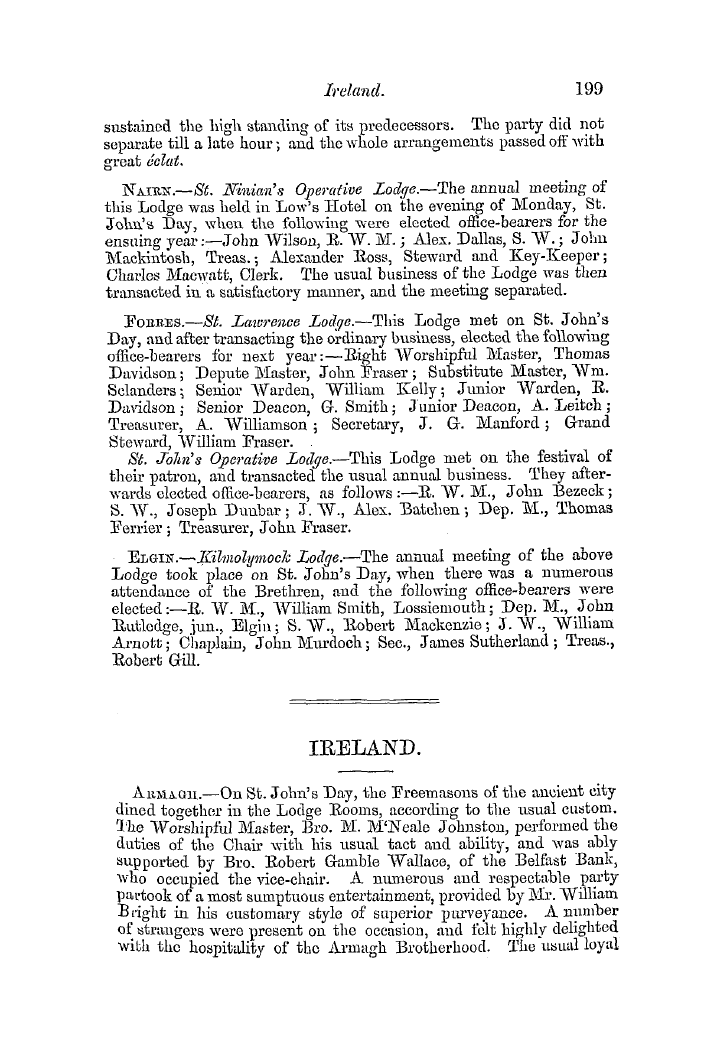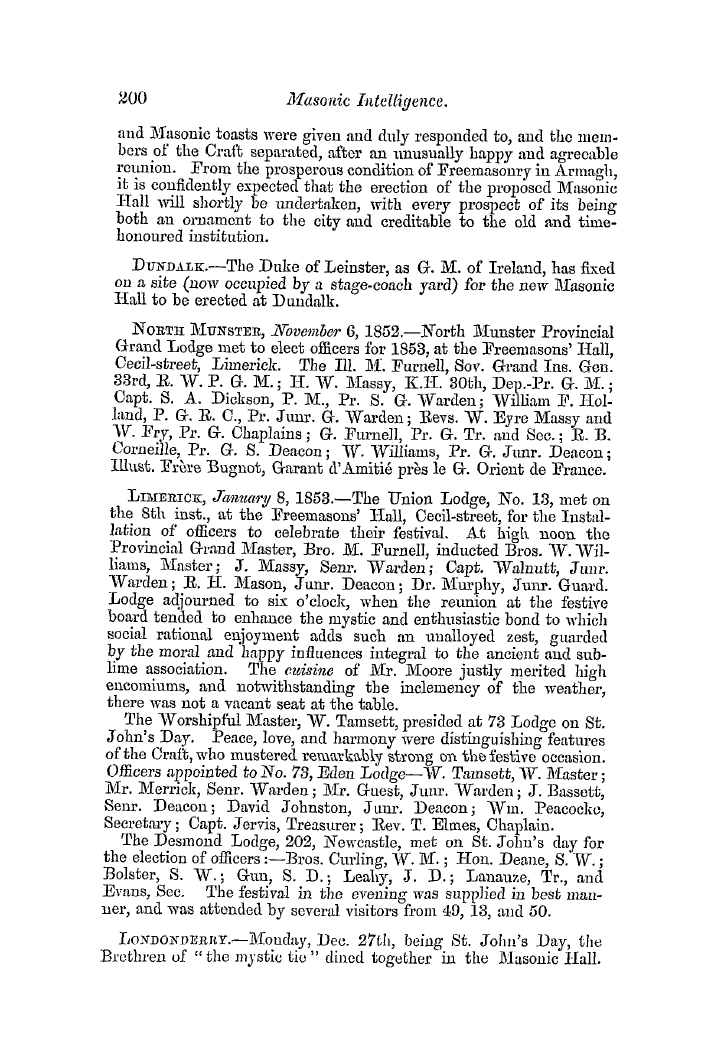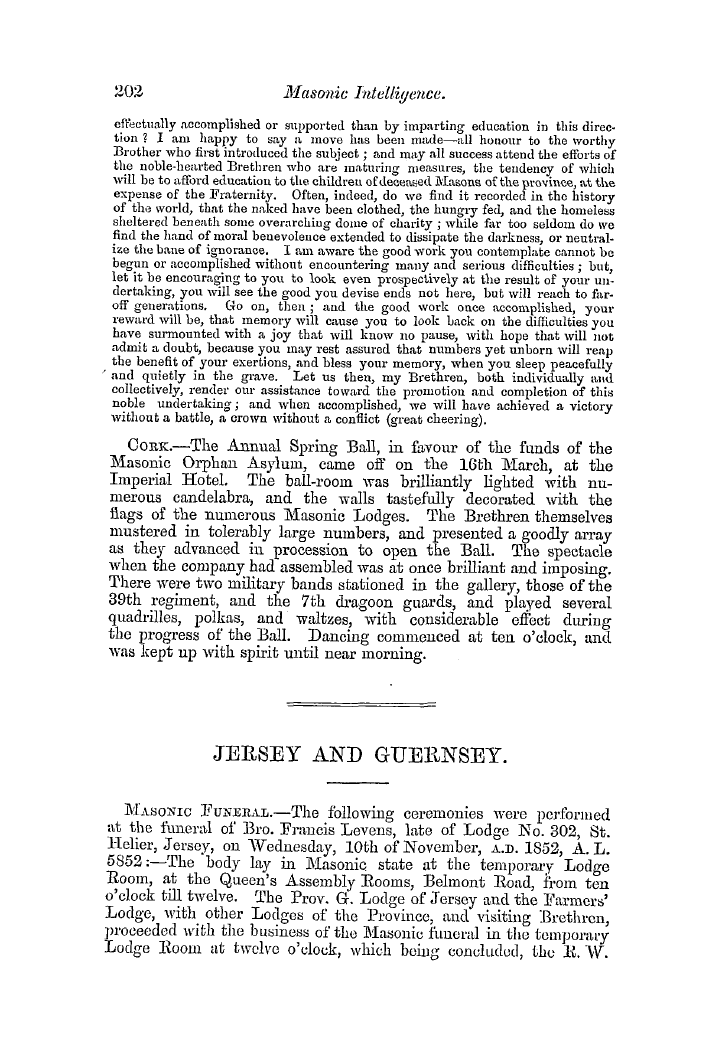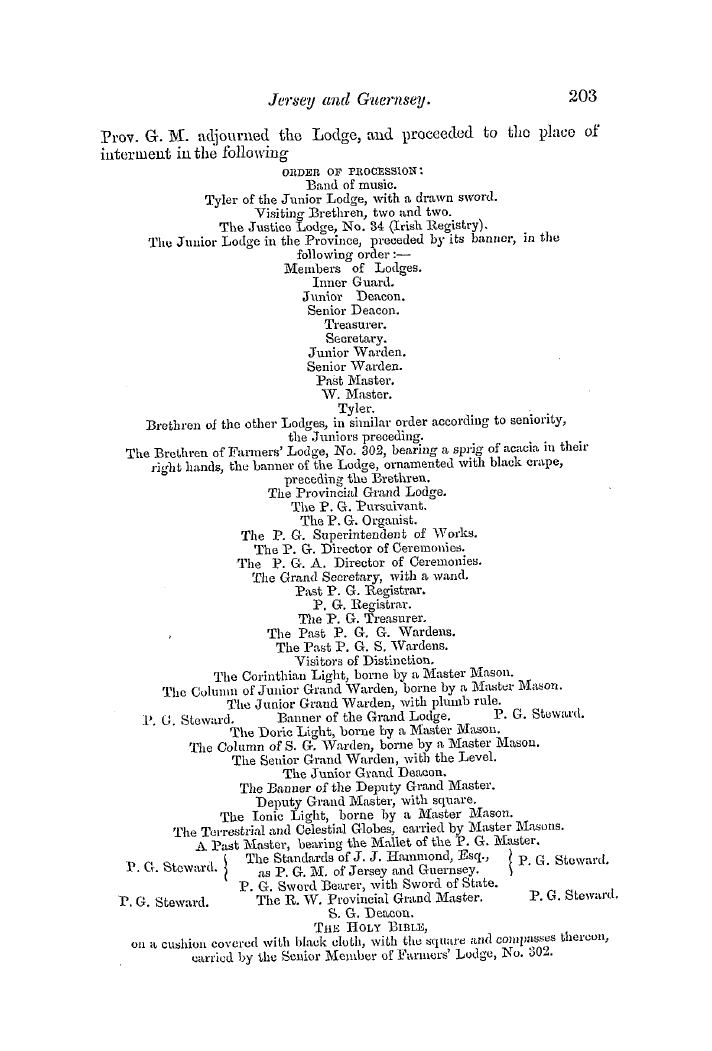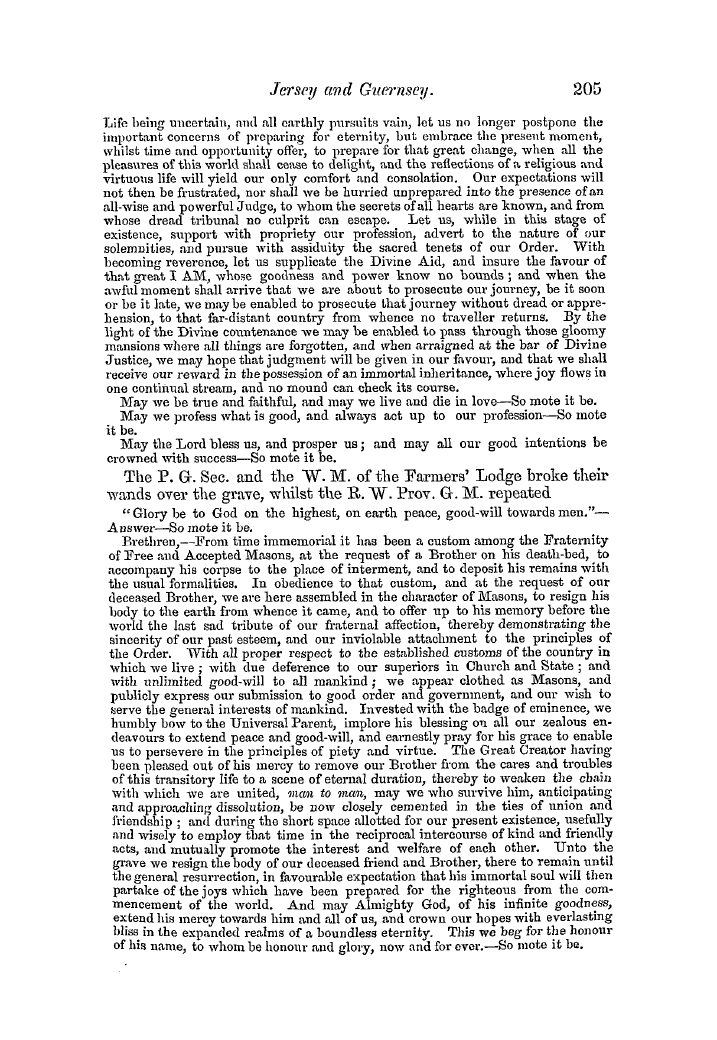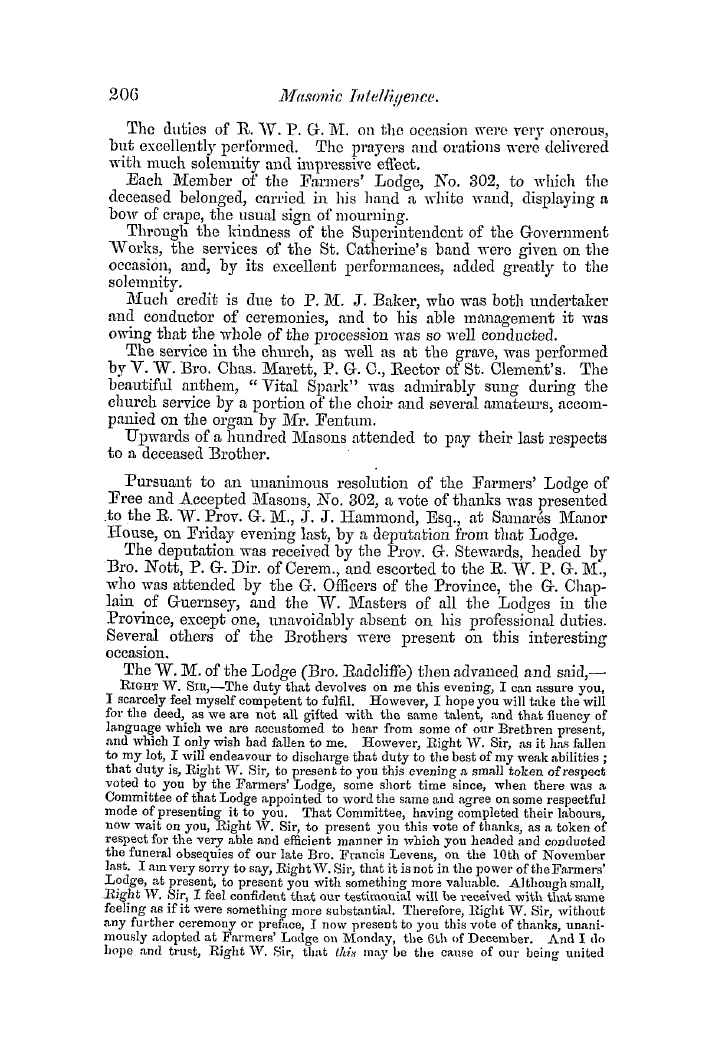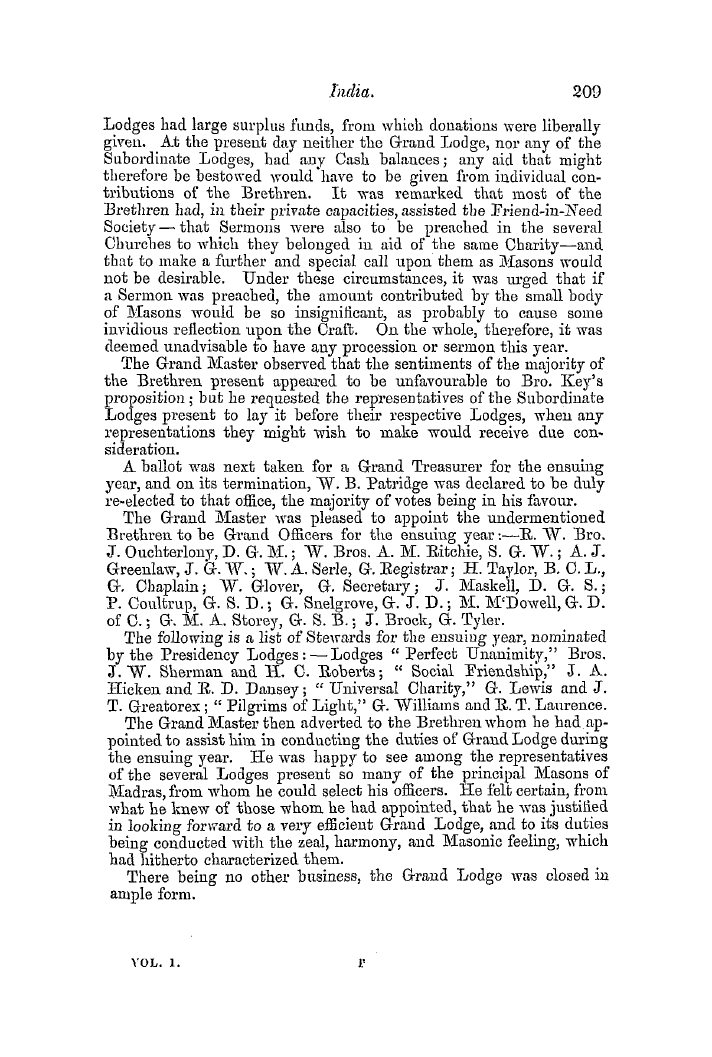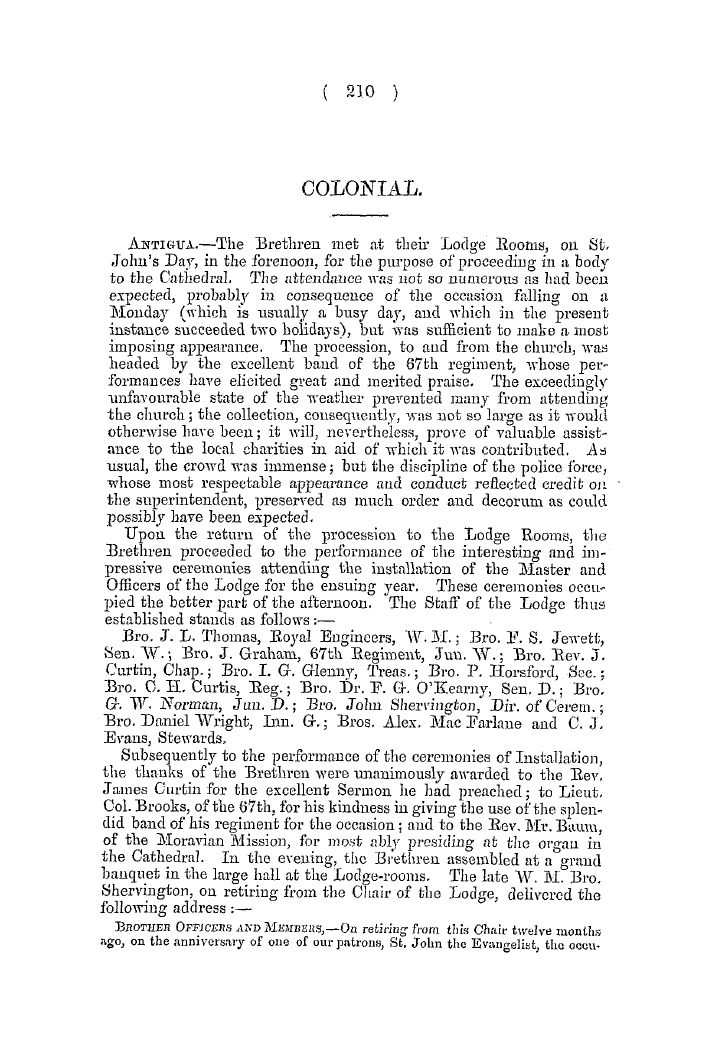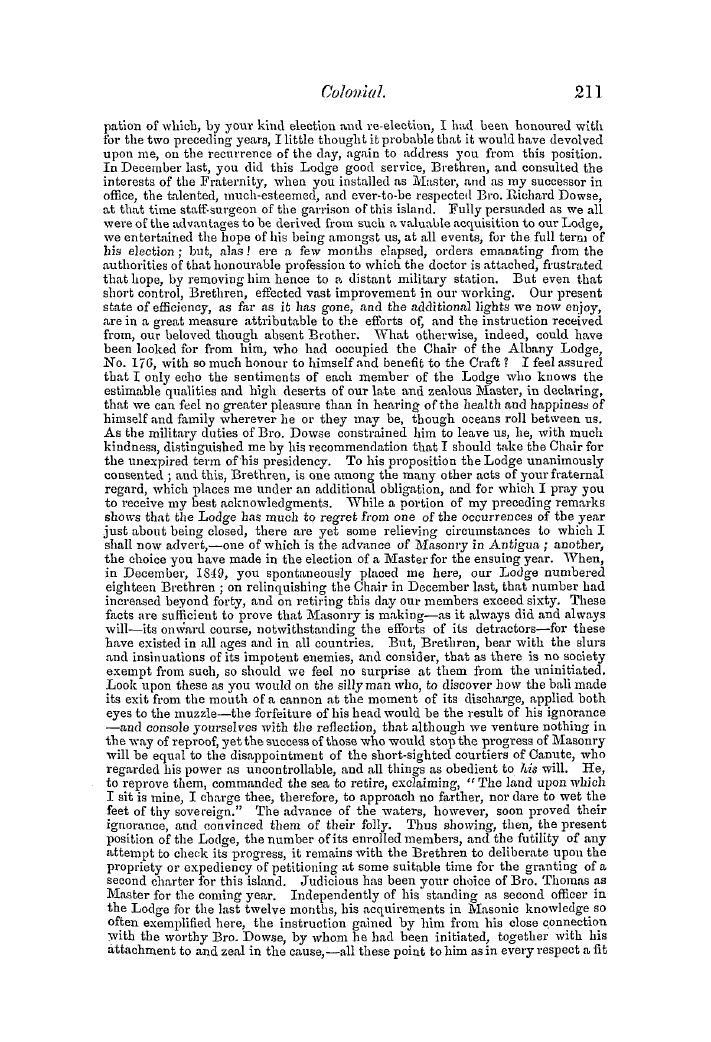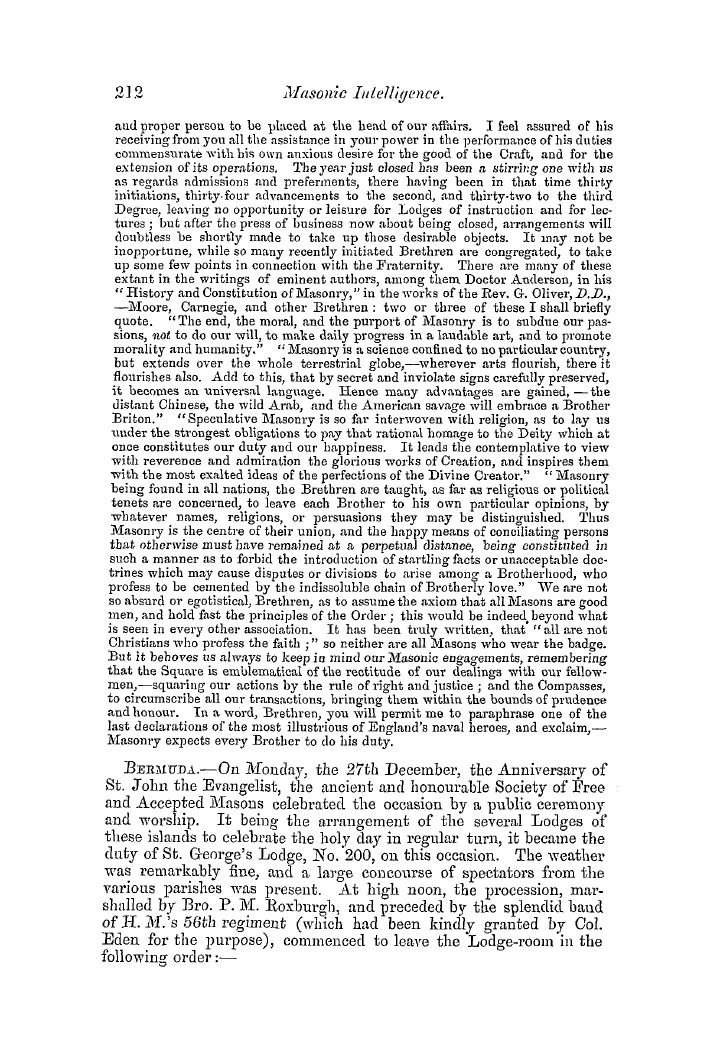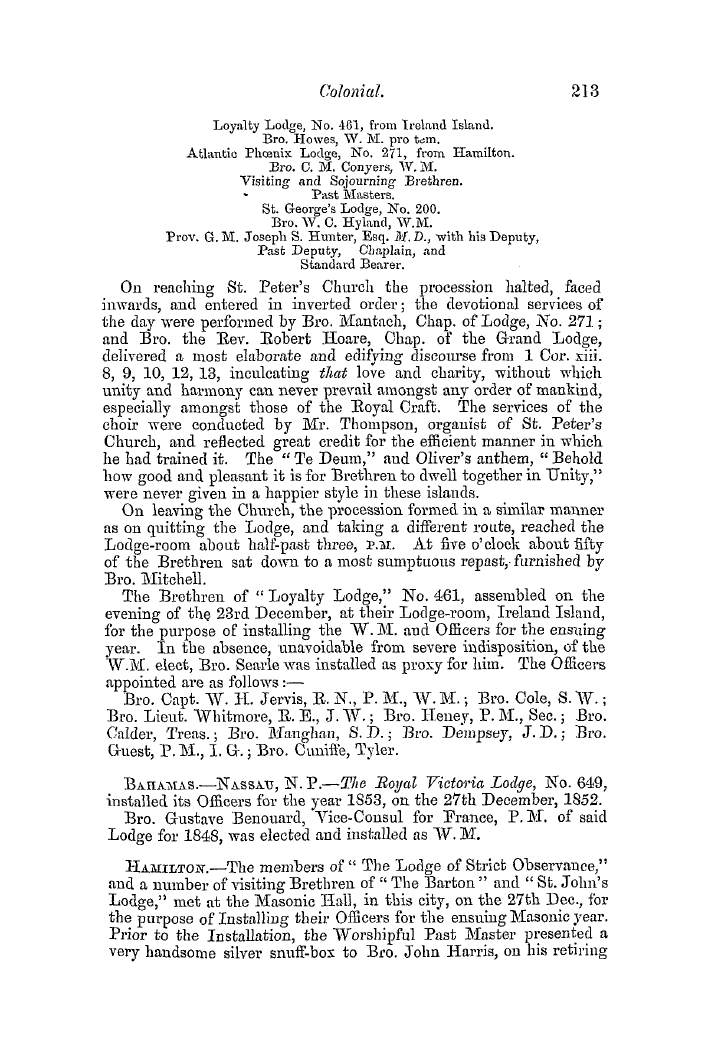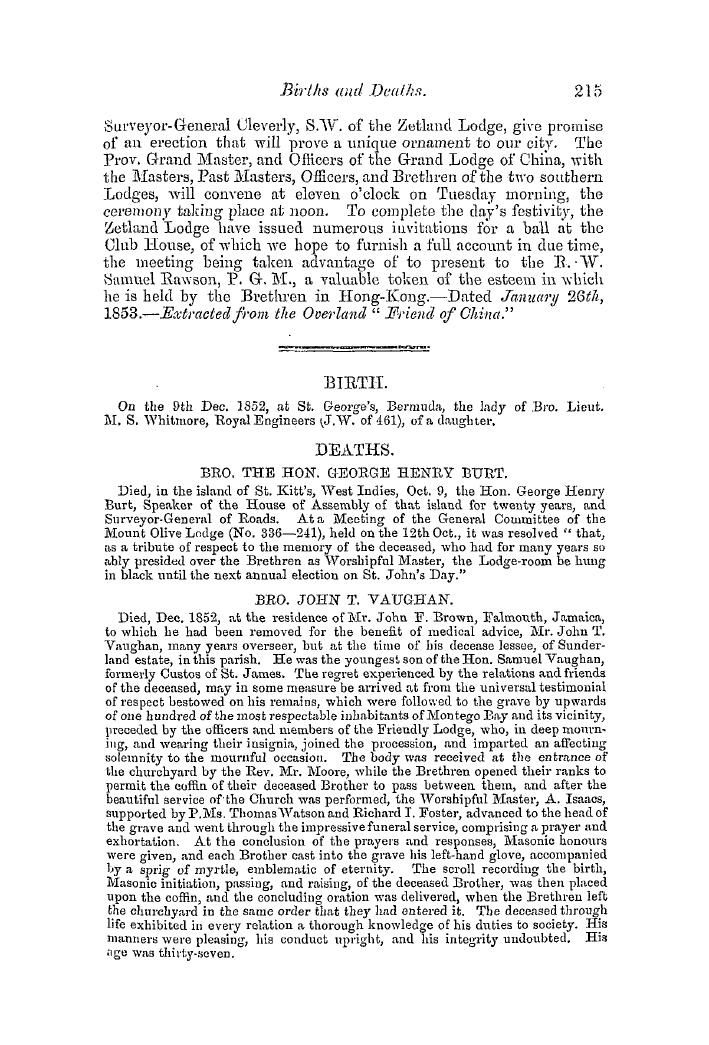-
Articles/Ads
Article THE UNIVERSALITY OF SUPERSTITION. ← Page 12 of 20 →
Note: This text has been automatically extracted via Optical Character Recognition (OCR) software.
The Universality Of Superstition.
unlucky , at tiie present clay , to meet a hare across the road . A agaries these , only a shade less xvild than that of the ancient augurs—though neither forming a distinct creed , nor elevated to the purpose of divination in state government , as of old . In the earlier ages of Christianity , it was ( for further example ) a general superstition that the moon coidd be dragged CIOAVII from
the skies , and forced to deposit a foam upon the earth , by means of incantations—the foam being collected by the sorcerers for their use . This was belieA'ed to be the cause of the eclipse ; at xvhich period , it xvas customary to assemble and make violent noises to prevent the queen of night from hearing the spells of her seducers . According to Pietro della A alle , the Persians
keep up the same custom to the present time . But this is a digression from the subject before us . Events are foretold by the Chinese according to the position in which certain pieces of wood fall , which their divines hax * e tossed in the air . The priests of the sect called Tao-tse , are both augurs and fortunetellers . In the augury of China rooks are deemed unluck
y , which corresponds xxith the notion of other nations . In the SandAvich Islands , oracular speeches are delivered by the king from a frame of wicker-Avork—accompanied by convulsions and paroxysms extremely similar to those of the AVestern oracles . At
Tahiti augury by birds is practised , with divination in cases of theft—bearing many points of resemblance to that of Rome . In Madagascar , also , diA'ination is performed by means of a sort of table resembling a chess-board , divided into sixty-foursquares . This practise is termed Sikidy . Ancient augury has undoubtedly left its traces in the
traditional legends ancl proverbs of later years . Thus , the stork , important at Rome , and much revered for its Avisdom ancl piety by the Egyptians , is still believed by common people to indicate prosperity to any house on Avhich it settles . In 1685 , a book Avas published on the " Magick of Persia , " with an account of the annual appearance at spring-time of a host of storks by the
river Xanthus ; these did battle xvith a battalion of carnivorous birds stationed across the water . If the storks conquered , fruits and corn were to be abundant ; if the croxvs ancl vultures were victorious , oxen were to be multiplied . _ The tendency to belief in supernatural communication by xisible tokens istoo lified by the umversalitof the
-, , exemp y prac tice of judicial astrology ancl trial by ordeal—as in the case of touching the body of a murdered person , in order to discover the assassin b y the floxv of blood . Modem instances are not xA-anting of a similar nature . It is a country practice for young girls to throxv hemp-seed over their shoulders , at Midsummer
Note: This text has been automatically extracted via Optical Character Recognition (OCR) software.
The Universality Of Superstition.
unlucky , at tiie present clay , to meet a hare across the road . A agaries these , only a shade less xvild than that of the ancient augurs—though neither forming a distinct creed , nor elevated to the purpose of divination in state government , as of old . In the earlier ages of Christianity , it was ( for further example ) a general superstition that the moon coidd be dragged CIOAVII from
the skies , and forced to deposit a foam upon the earth , by means of incantations—the foam being collected by the sorcerers for their use . This was belieA'ed to be the cause of the eclipse ; at xvhich period , it xvas customary to assemble and make violent noises to prevent the queen of night from hearing the spells of her seducers . According to Pietro della A alle , the Persians
keep up the same custom to the present time . But this is a digression from the subject before us . Events are foretold by the Chinese according to the position in which certain pieces of wood fall , which their divines hax * e tossed in the air . The priests of the sect called Tao-tse , are both augurs and fortunetellers . In the augury of China rooks are deemed unluck
y , which corresponds xxith the notion of other nations . In the SandAvich Islands , oracular speeches are delivered by the king from a frame of wicker-Avork—accompanied by convulsions and paroxysms extremely similar to those of the AVestern oracles . At
Tahiti augury by birds is practised , with divination in cases of theft—bearing many points of resemblance to that of Rome . In Madagascar , also , diA'ination is performed by means of a sort of table resembling a chess-board , divided into sixty-foursquares . This practise is termed Sikidy . Ancient augury has undoubtedly left its traces in the
traditional legends ancl proverbs of later years . Thus , the stork , important at Rome , and much revered for its Avisdom ancl piety by the Egyptians , is still believed by common people to indicate prosperity to any house on Avhich it settles . In 1685 , a book Avas published on the " Magick of Persia , " with an account of the annual appearance at spring-time of a host of storks by the
river Xanthus ; these did battle xvith a battalion of carnivorous birds stationed across the water . If the storks conquered , fruits and corn were to be abundant ; if the croxvs ancl vultures were victorious , oxen were to be multiplied . _ The tendency to belief in supernatural communication by xisible tokens istoo lified by the umversalitof the
-, , exemp y prac tice of judicial astrology ancl trial by ordeal—as in the case of touching the body of a murdered person , in order to discover the assassin b y the floxv of blood . Modem instances are not xA-anting of a similar nature . It is a country practice for young girls to throxv hemp-seed over their shoulders , at Midsummer
































































































































































































